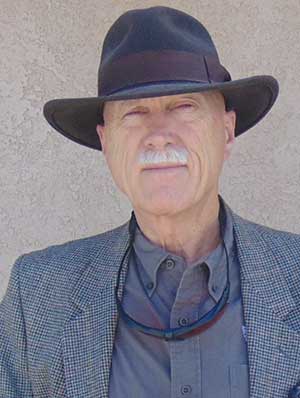
Arizona -(Ammoland.com)- In the Soviet Union, it was very difficult to obtain firearms legally. All firearms were required to be registered. Being caught with an unregistered firearm was a serious offense. Registration was used by the state to control who was allowed to have firearms, and who did not. The law stemmed from the decree of 1918. From wikipedia.com:
The December decree of the CPC of 1918, “On the surrender of weapons”, ordered people to surrender any firearms, swords, bayonets and bombs, regardless of the degree of serviceability. The penalty for not doing so was ten years imprisonment.
Communist Party members were allowed to have a rifle or a pistol, as an automatic perk of party membership. The firearm was recorded as part of their party membership.
I recently met a Soviet immigrant who came to the United States in 1991, at 47 years old. His name is Vladimir, and I have had several fascinating conversations with him about life in the old Soviet Union.
As we talked about firearms, I mentioned how gun control is morphing into knife control in areas which already have strict firearm controls.
Vlad told me how certain knives were tightly controlled the Soviet Union. Hunting knives and military knives such as bayonets were required to have serial numbers and were registered with the State.
Hunters had to belong to a hunting club, and show that they were active to be able to buy a hunting knife. Vlad said this was a very stupid policy because kitchen knives were not controlled, had no registration number and could be just as deadly. He said that good knives could easily be made from automobile or truck springs.
Vlad said much of the difficulty of living in the old Soviet Union was that so much of the regulation and law made no sense. Everyone understood much regulation and law made no sense, but there was no way to undo the regulation or repeal the laws. Many Americans see similar irrational regulations in the United States. [IE: New Jersey Gun Laws]
I asked Vlad why he came to the United States. He said it was because he wanted to live in a society where daily existence did not require a person to continually lie. Now he sees political correctness and the push to not allow certain words or concepts as a dangerous trend in the United States.
He asked if I had read George Orwell’s “1984”.
I said I had.
He said the novel “1984” was the reality of life in the old Soviet Union. For his entire life, he learned to depend on and trust friends and confidants, rather than any government officials in *any* government.
Vlad has thrived in the United States. He is on the faculty of a major Midwestern University, working with his Ph.D. in cancer research. His wife immigrated with him and is a medical doctor. He owns his own home. His son, who immigrated with them, has a promising career of his own. He has won bodybuilding competitions in the United States.
I met him because he was a member of a gun club I had belonged to in the 1980s.
Anyone could join that gun club, but membership was not required in order to purchase a knife. Membership was not required to purchase a gun or ammunition, or reloading supplies. Private sales of guns often happened at the gun club, without state intervention. The members knew and trusted each other. We have a name for that sort of behavior.
Freedom!
In the United States, state legislatures are reversing decades of irrational knife laws. I have not seen a tendency to register knives in the United States. Yet.

About Dean Weingarten:
Dean Weingarten has been a peace officer, a military officer, was on the University of Wisconsin Pistol Team for four years, and was first certified to teach firearms safety in 1973. He taught the Arizona concealed carry course for fifteen years until the goal of constitutional carry was attained. He has degrees in meteorology and mining engineering, and recently retired from the Department of Defense after a 30-year career in Army Research, Development, Testing, and Evaluation.
